It’s the final recap, X-Philes! What a saga this has been. It’s been over a year since I embarked on my recapping journey and fell head over heels in love with this magnificent show. Tragically however, it has to end on a dud note—season 9 was terrible. Really, really terrible. I hate to be so negative but this was honestly the only season of the show I found so bad as to be borderline unwatchable. Previous seasons have had their low points, but this one lacked even a few good standalone episodes to salvage it.
The second film, The X-Files: I Want to Believe, was—unfortunately—equally awful so this is going to be a downer throughout. Please bear with me. In the interests of ensuring this isn’t a complete wall of annoyance, I’ve compiled a list of my favorite episodes so we’ll still have something nice to talk about in the comments! Let’s just plow through the mess of Season 9 and IWTB and then we can wallow in nostalgia.
Mytharc
We’ve been through a lot in this show. Alien abductions, colonizing forces, shapeshifting bounty hunters, clones, rebel factions. Black oil and alien artifacts, spies and whistleblowers, toxic blood and exploding boxcars. Native American lore has been invoked, Biblical references abounded, beliefs and instincts and stances have all been questioned. Where does one logically go, then, but to super-soldiers?
Because…obviously. Now, in fairness, this isn’t the worst idea in the world. It makes perfect sense that unscrupulous government types would attempt to use alien DNA to conduct military experiments. In an ideal world, the writers might have drawn on the established X-Files rep of railing against secretive government behavior and used this season to examine abuses of military power. Demanding more transparency and accountability isn’t a ridiculous notion and it would have fit perfectly with the show’s ethos. However, that’s not where it goes, and in that sense it can’t be a coincidence that this season aired shortly after the 9/11 attacks. It pivots sharply away from storylines about distrusting the government and instead focuses heavily on the tactics used to bolster domestic defenses.
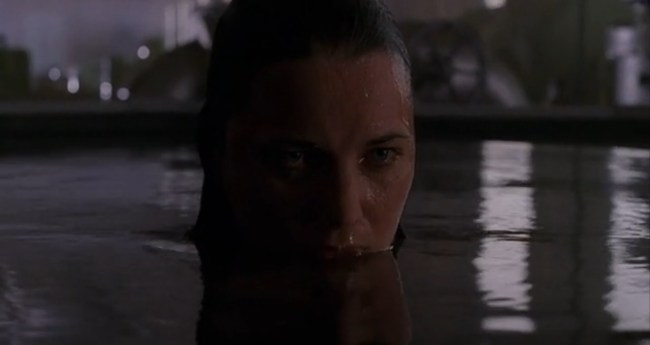
Lucy (F)Lawless
We got a glimpse of the super-soldier programme in S08 with the introduction of Knowle Rohrer (Adam Baldwin). Rohrer plays a fairly prominent role in S09 as well. In the season openers, we’re introduced to Shannon McMahon (Lucy Lawless), a fellow product of the super-soldier programme. She leads Scully, Doggett, and Reyes to a ship where they find evidence of the super-soldier experiments. Unfortunately however, the ship’s been rigged with an explosive device and the evidence is destroyed almost as soon as it’s discovered. McMahon and Rohrer face off and seemingly kill each other, though Scully later dreams of Shannon coming back to life.
These two episodes (“Nothing Important Happened Today” Parts 1 and 2) also introduce Assistant Director Brad Follmer, played with sleazy relish by Cary Elwes. The character had some potential when he first appeared but mainly acts as a foil for Doggett and Reyes, not that one was needed when Kersh is still around and just as infuriating as ever. Follmer’s also supposed to be Reyes’ ex which makes perfect sense given Reyes is so obviously completely 100% straight. (stares directly into camera)
Mulder’s in hiding for some unfathomable reason. In “Trust No 1”, he and Scully exchange emails and we learn that the supersoldiers are after him. Not entirely sure why. He’s completely failed at exposing anything over the last nine years so why he’d still be a target for government conspirators is beyond me, but I guess we have to go with it. This episode also features Terry O’Quinn, credited as Terrance Quinn, in an attempt to distract us from the fact he’s now played three entirely different characters in this show (including that memorable turn in Fight the Future).
In “Provenance,” things briefly step up a notch. Agent Robert Comer (Neal McDonough—if nothing else, this season had some quality guest stars), who’s been deep undercover in a UFO cult, attempts to kill baby William. Scully, justifiably terrified, decides to give the baby to the Lone Gunmen to keep him off the radar. William’s been showing signs of supernatural abilities which isn’t doing much to ease her concern. Unfortunately, the aforementioned cult is also after the baby. One of their members shoots out the Lone Gunmen’s tires and kidnaps William at gunpoint. She also runs Doggett over, just to underline her nastiness.
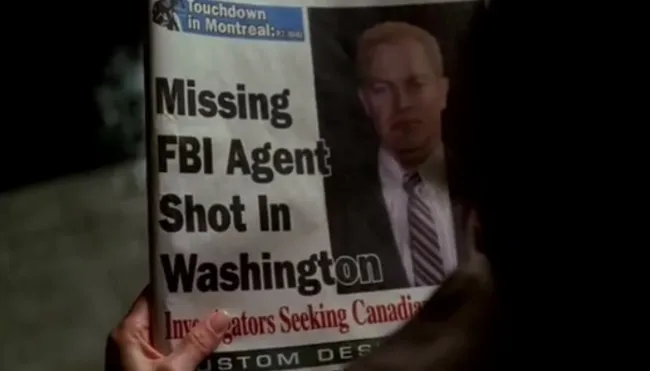
Remember when Buck got shellshock in Band of Brothers and none of us ever recovered
There follows “Providence,” where any potential this season had is swiftly jettisoned into the abyss. You can pinpoint the exact moment it happens: Scully meets one of these crazy cult members, who looks her in the eye and actually says out loud “bring me the head of Fox Mulder.” That, my friends, isn’t so much jumping the shark as corkscrewing over it on a jetski. I guffawed when I heard it. I’m sure that wasn’t the writers’ intention.
Speaking of oceanic killing machines and upward motion, the hammer falls on the Lone Gunmen in “Jump the Shark.” I haven’t seen the spin-off so I can’t comment on how well the episode ties in to that, but as an episode of The X-Files it’s at least less awful than the rest of the season. Only marginally so. Our trio of unlikely heroes get embroiled in a quest to stop a virus and end up sacrificing themselves for the greater good. It seems about right for their characters, but the last scene indicates they’ve been buried in Arlington Cemetery which is a bit rich. Skinner and Scully attend the makeshift funeral and look stony-faced, representing all of us who were never mad about the Lone Gunmen yet still didn’t want them to go out this way. That said, if the cold open is in any way representative of the spin-off, their show might have been a hoot. It had Morris Fletcher! Now there’s a character in X-Files lore we should have seen more of.
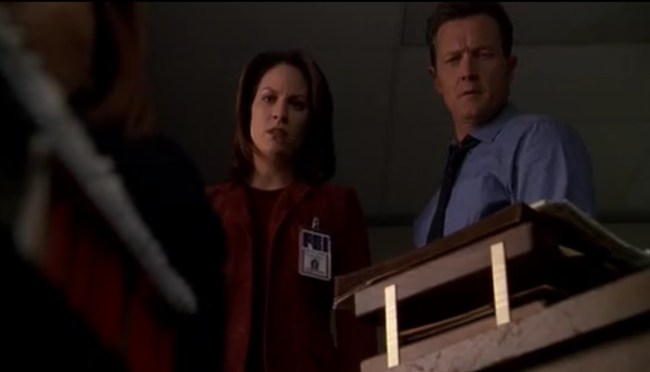
My faves, imitating my face during much of this season
Then comes “William,” which almost made my head explode. After various attempts on her son’s life, Scully ultimately resolves to give him up for adoption. It’s a decision that’s almost understandable and one which could have been heartbreaking were it handled in any kind of decent manner. Everything about the boy’s conception and being is so utterly shrouded in mystery that it’s hard to really invest in this storyline, so the show basically trades on viewers’ prior knowledge of Scully’s fertility troubles and desire to be a mother to elicit emotion. I’ll discuss this more later, but it’s not good. It also has a disfigured Spender—shockingly, not dead despite that bullet to the face—trying in vain to convince us the CSM was Mulder’s father so that the show can draw a flimsy DNA connection between him and Mulder. Dude, just stop. Please. Much like “fetch,” this is never going to happen.
Finally, we get the feature-length “The Truth,” the last episode of the show. Mulder reappears (with zero explanation as to where he’s been this whole time), breaks into a government facility and ends up being framed for Knowle Rohrer’s murder. Rohrer’s like a particularly nasty case of herpes: once you get the virus, you’re stuck with it. There follows a farcical trial at which Skinner, inexplicably appointed as Mulder’s counsel, calls a variety of witnesses from Marita Covarrubias to Gibson Praise and outlines Mulder’s entire history as a paranoid Reddit dweller. Or crusading freedom fighter, take your pick. It’s essentially an excuse to play a highlight reel of the show’s better moments across the previous nine seasons, building nostalgic affection before the inevitably underwhelming ending. Only Reyes has the ovaries to tell the judging panel to shove it. Oh, and Mulder’s seeing Krycek’s ghost for some reason. I’d like to think that Mulder’s actually in a psychiatric facility and reflecting upon his great loves (sunflower seeds, dry wit, Alex Krycek), but let’s stay on topic.
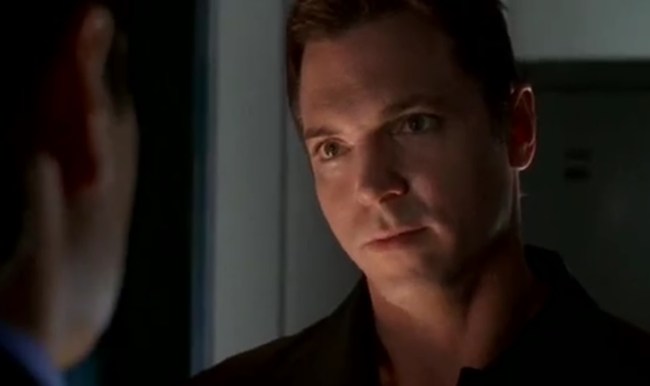
I will go down with this ship
Mulder is sentenced to death by lethal injection. With everything that’s happened across nine years of this show, this actually requires the biggest suspension of disbelief. Scully, Doggett, Reyes, and Skinner decide to break him out and Kersh helps, because the show thought it’d be too blunt to just write “fuck you, that’s why” on the screen. Despite being urged to run to Canada, Mulder insists on going to New Mexico. There, they find the CSM living as a withered banshee in a little cave with a poor Native American woman who never asked for any of this. A substance in the vicinity can kill super-soldiers, as evidenced by Rohrer’s morphing into Cyclops from X-Men and taking a kamikaze plunge into the side of the mountain. Some helicopters show up and the place is bombed into oblivion. Farewell and adieu (again) to the CSM, and as ever, thanks for absolutely nothing.
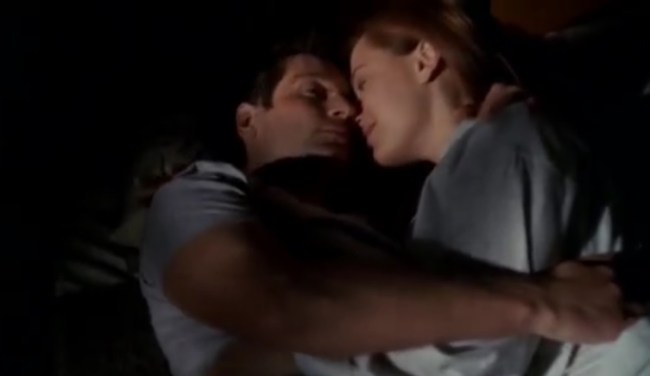
Mulder, awaking in an alternate reality to tell Scully this season was all a horrible dream
Finally, Mulder and Scully find themselves in a motel reflecting on how far they’ve come. Mulder remembers that they were in a similar motel when he first told her about Samantha. Scully notes that despite everything that’s happened, Mulder still hasn’t found what he’s looking for. In characteristically eloquent fashion, Mulder replies that the dead aren’t lost to us. They still speak and in that, we can find the power to save ourselves. Let’s pivot over the bit where none of that makes sense and focus on the one solid piece of continuous character development in having Mulder dwell on death and loss and legacy and how it informs his behaviour. Our heroes crawl into bed together, with Mulder caressing Scully’s cross necklace. “Maybe there’s hope,” he says, and all fades to black.
And that’s it! I actually wrote a much angrier draft of this recap and then deleted it for the above, because being mad at a great show for a terrible ending is pointless. It happens so much it’s practically the norm, and at least the show can say that this was the only really bad season it made. This doesn’t, however, make it any less disappointing or its flaws any less glaring.
Firstly, Scully giving up William. As I wrote above, I can understand this action to an extent. As a concerned mother, it makes sense that she’d want to give her son the best chance at a safe and normal life. However, the show doesn’t earn this development at all. It’s been consistently awful at handling anything to do with pregnancy and motherhood and this is like salt in the wound. We’re not given enough information about William to understand the stakes. It’s implied he has abilities—he levitates a piece of that alien artifact from “Biogenesis” over his crib—and that he may be a product of the super-soldier program. But nothing is ever made clear. In fact, the show goes out of its way to obfuscate the child’s origins, so much so that it may as well have shown Scully giving up a favorite lamp so much as her child.
We had a better sense of what Queequeg’s loss did to Scully than we do her own son, because after this episode William is barely mentioned again and Scully’s emotional state is not examined. At all. Any mother would be hugely affected by that experience, not least one who longed for a child, got pregnant despite thinking she was infertile, and gave birth in dangerous circumstances. And that’s before we even consider Scully’s earlier experiences with Emily, another baby she wasn’t able to save. The impact of that loss was made very clear in “All Souls,” but William gets no acknowledgement at all. The lack of thought the writers put into this whole storyline is pathetic. Their complete disinterest in exploring women’s experiences in general and motherhood in particular has never been more obvious.
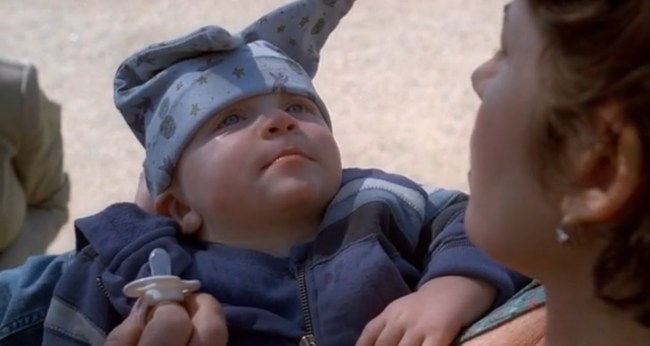
YOU DESERVED BETTER
Secondly, the sheer silliness of the entire plot. As noted above, there was obvious potential this season. In the absence of Mulder, they never had a better opportunity to ground the mytharc in something more relevant to the real world. Instead, it abandons all sense of continuity, reason, and good sense. It spins off into an increasingly flimsy storyline about cults, soldiers, cover-ups, and immoral experiments that’s somehow less plausible than anything they ever wrote about aliens. I understand that ideas were thin on the ground at this stage but that doesn’t excuse the laziness on display throughout. Instead of focusing on one storyline and specific characters, they introduce all manner of shady conspirators and mysterious players and never satisfactorily resolve any of it.
Neither do they use any of this material to do some character work. There’s barely any development for the established characters all season. In any episode involving William, Scully’s essentially reduced to the role of hysterical mother; written in such a detached and emotionless manner she’s barely recognisable. An early plot strand depicting her as a mentor figure for Reyes (in “Daemonicus,” she tells Monica to “trust her instincts”) never pans out. Skinner’s promoted to series regular on the opening credits but given precisely nothing to do in the show itself. He appears occasionally and glares, but that’s about it. Doggett and Reyes are two genuinely compelling characters lost in a show which couldn’t care less about them. It’s not clear what they wanted Follmer for when Kersh still had a job either.

“Hi I’m here to…oh it’s already ruined”
This all makes for a sadly mediocre ending to a groundbreaking show. It’s much easier to think of the S08 finale as the actual ending—Mulder and Scully were together with the baby, Doggett and Reyes were taking over the X-Files, the Lone Gunmen were well and look, if fucking SPENDER can come back from being shot in the face, the bullet between Alex Krycek’s eyes is irrelevant. I can’t even pinpoint a single episode of this season I’d like to rewatch.
Some final notes:
- In “Release,” Doggett finally learns the truth about who killed his son. It’s awkwardly and hastily resolved but it does give Robert Patrick a chance to show off his emotional chops. I watched Cop Land shortly after seeing this episode and it was a rollercoaster, lemme tell you. (For those who haven’t seen Cop Land: Patrick plays a scumbag cop, the literal antithesis of Doggett.)
- The aforementioned “Daemonicus” wasn’t bad, managing to be effectively spooky and featuring James Remar in a decent role. However, what should have been a showcase for Reyes’ skills in solving ritualistic crimes is instead given over to Doggett and a largely tension-free game of cat and mouse.
- “Improbable” is definitely one of the worst episodes of the show’s entire run. How do you make an already extremely irritating season even more vexatious? Add obnoxiously loud music and Burt Reynolds. Bonus annoyance for an episode evidently inspired by Jackass (“Lord of the Flies”) and no, youthful Aaron Paul doesn’t redeem it.
- “Scary Monsters” is quite good, relying on old-fashioned psychological spooks and scares to get under the skin. A much-needed departure from the season’s tendency to focus on the darkest, grimmest, most disturbing storylines known to man.
- “Sunshine Days” makes for a neat follow-up to the above, in that it shows a man obsessed with recreating an idealistic family set-up (The Brady Bunch) and the home as a safe haven. It was light-hearted and genuinely quite affecting. Had Mulder been around for this one, the observations would have been choice.
The X-Files: I Want To Believe
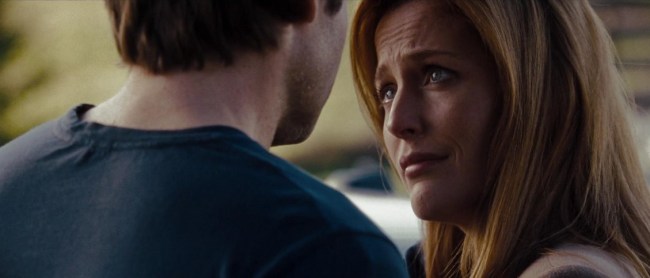
I know, Dana. I know
I’m not going to spend a great deal of time on this, because it doesn’t deserve it. Helpfully, there’s exactly zero plot and nothing of relevance to the show’s mythology, so what happens can be summed up thusly:
A female FBI agent is abducted. A convicted paedophile priest with psychic abilities claims she’s still alive. The FBI contact Scully, now a surgeon at a Catholic hospital, and ask for Mulder’s help. Mulder is quite literally a bearded hermit. A second woman is abducted. The kidnappers are trying to conduct head transplants. In case the film hadn’t already endeared you with its continuous use of violence against women, the female agent (hi Amanda Peet!) spearheading the investigation is needlessly killed while pursuing one of the kidnappers. Mulder’s entire arc is essentially that of an aging white guy seeking relevance. Scully spends most of the film wondering whether to perform a dangerous but potentially life-saving surgery on a boy with a serious medical condition. The paedophile priest is not only given more prominence than she is, but they spend a good deal of time actually…attempting…to…redeem him. He dies of lung cancer at the end, and Mulder still wants his psychic contributions to the investigation recognized. If you’ll pardon my speaking euphemistically, it’s quite bad.
The ONLY thing worth noting about this study in staggering pointlessness is that Mulder and Scully apparently break up. It’s sad, and not in a good way. Scully wants a normal life and only now begins to realize that Mulder may never grow out of his basement-dwelling tinfoil hat phase. Mulder seems to understand that he’s spent twenty years repeating the exact same drivel (what’s that thing about insanity?) and has nothing to show for it. This great man, so consumed by purpose, is literally wasting away into nothingness. There’s a pile of needless horror and trauma and death and it really beggars belief as to why they felt they needed a child abuser in the middle of it all. The only point of his being a priest was so Scully could rant at him—in extremely out-of-character dialogue—about his transgressions and then briefly engage in an argument about scripture. There wasn’t even a Krycek cameo, and the kidnappers were nasty to dogs.
I’m actually glad my laptop disc drive broke when I took out the DVD.



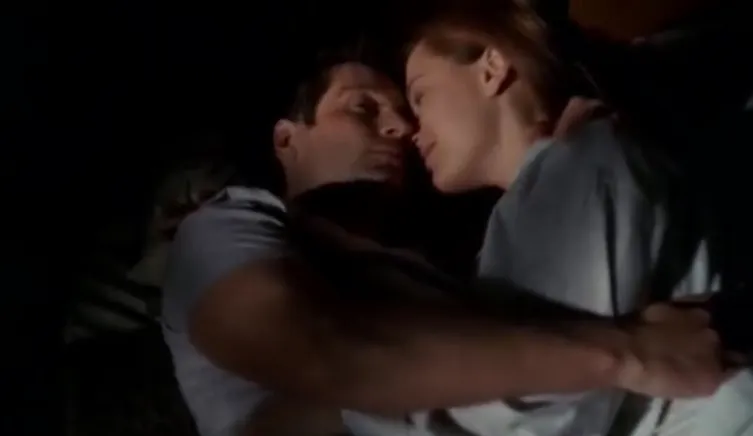
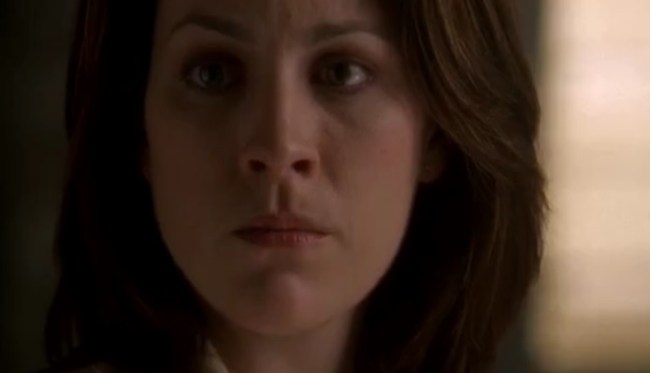





Published: Oct 9, 2016 11:00 am